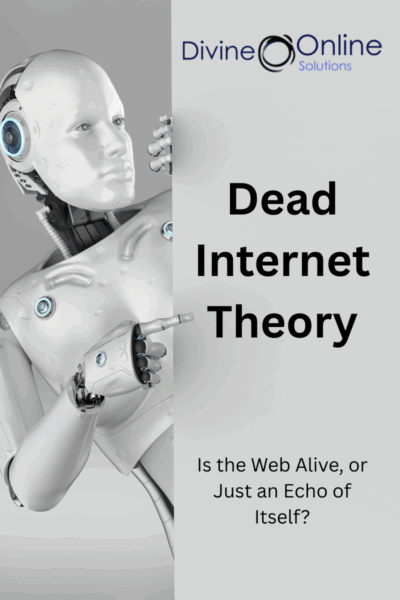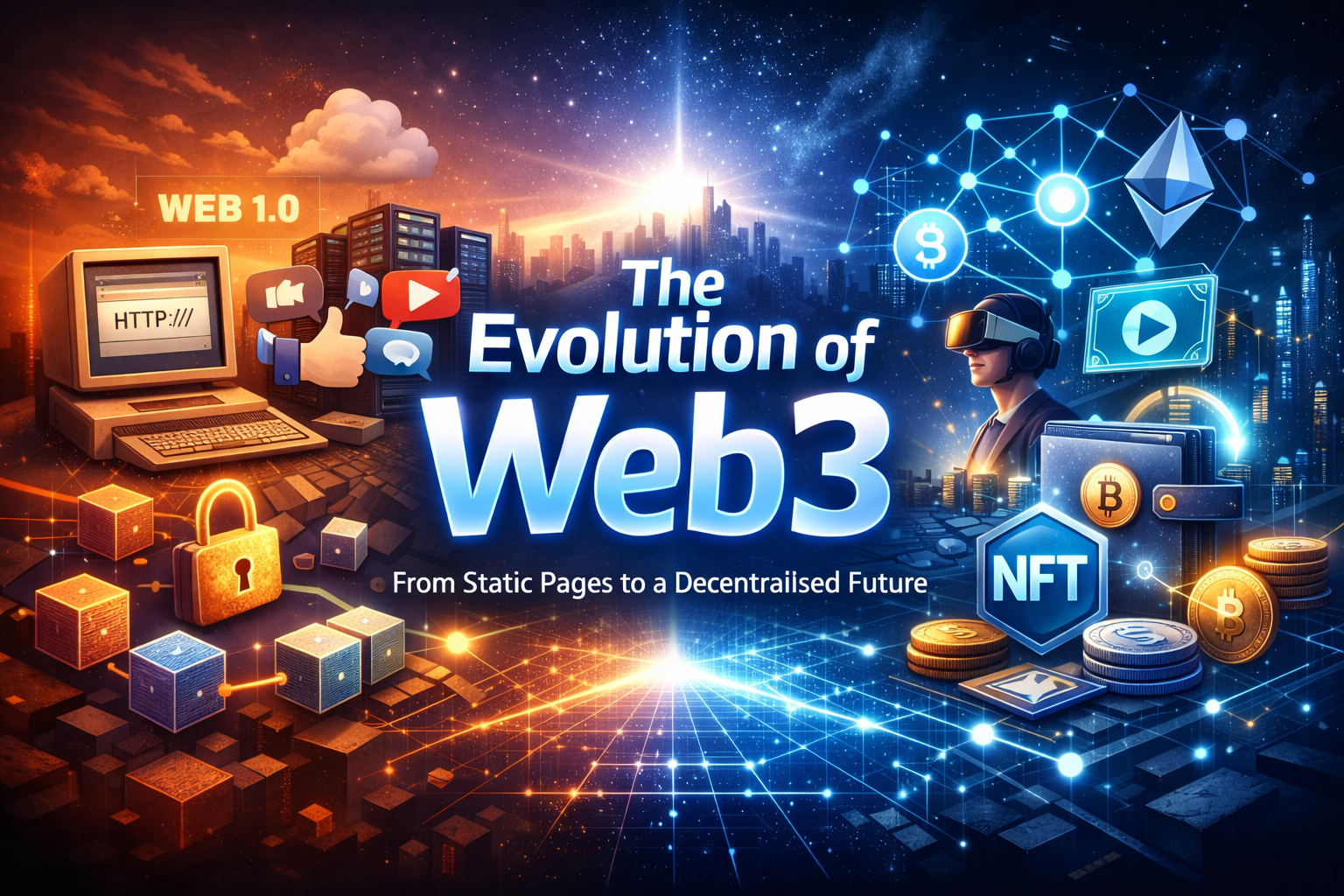Is the Web Really Dying, and What Does It Mean for Your Business?
In an era where artificial intelligence shapes our daily lives, the chilling Dead Internet Theory has resurfaced. Picture scrolling through your social media feed and discovering that bots and AI algorithms, not real people, create most posts, comments, and viral trends. Sounds like science fiction? Unfortunately, elements of this theory are becoming all too real, especially as AI-generated content floods platforms like Facebook and Instagram. At Divine Online Solutions, we specialize in helping businesses navigate the complexities of the digital world with authentic, human-centered IT support. In this post, we’ll dive into the Dead Internet Theory. We explore its origins and evidence, and discuss its implications for your online presence. Plus how our services can help you stay ahead in an increasingly automated landscape.
What Is the Dead Internet Theory?
The Dead Internet Theory posits that the internet, as we once knew it (a vibrant space of human creativity and interaction) effectively “died” around 2016. According to the theory, the majority of online activity today is generated by bots. AI-driven content, and algorithmic manipulation, rather than genuine human users. Proponents claim this shift is part of a larger effort by governments, corporations, or shadowy entities to control public opinion, boost ad revenue, and suppress organic discourse.
At its core, the theory suggests that platforms are now Potemkin villages. Facades of activity where AI agents post, like, comment, and share in endless loops to simulate life. This isn’t just about harmless spam; it extends to sophisticated operations that could influence elections, spread disinformation, or even farm engagement for profit.
Origins and Rise of the Theory
The theory’s roots trace back to online forums like 4chan and Wizardchan, but it gained traction with a 2021 post on Agora Road’s Macintosh Cafe forum titled “Dead Internet Theory: Most Of The Internet Is Fake.” This anonymous manifesto argued that human activity had been overtaken by automation, citing examples like repetitive bot tweets and curated search results. Mainstream media amplified it, with articles in The Atlantic in 2021 declaring the internet had “died” five years prior.
Fast-forward to 2024 and 2025, and the theory has seen a resurgence thanks to explosive advancements in generative AI like ChatGPT and Google’s Gemini. Reports from Imperva indicate that nearly 50% of web traffic comes from bots, a figure that’s held steady since 2016. Predictions suggest that by 2025-2030, up to 99.9% of online content could be AI-generated, drowning out human voices.
Evidence and Eerie Examples
While often dismissed as a “paranoid fantasy,” the theory isn’t without supporting data. In an era where artificial intelligence drives our daily lives, the chilling Dead Internet Theory resurfaces. Imagine scrolling through your social media feed and realizing that bots and AI algorithms, not real people, craft most posts, comments, and viral trends. Bot farms actively amplify narratives during events like mass shootings or geopolitical conflicts, such as pro-Russian disinformation campaigns on X (formerly Twitter), where thousands of fake accounts work to undermine support for Ukraine.
One viral example is “Shrimp Jesus”—absurd AI-generated images on Facebook merging crustaceans with religious icons, racking up thousands of likes and comments like “Amen” from what appear to be bot accounts. Similarly, identical “I hate texting” tweets from suspicious accounts have gone viral, hinting at coordinated bot activity. On YouTube, fake views have become so rampant that algorithms struggle to distinguish real engagement from artificial.
Recent developments include Meta’s 2025 plans to roll out AI-powered autonomous accounts on Facebook and Instagram, complete with bios, profiles, and generated content—essentially legitimizing bot-like behavior for advertising. TikTok’s virtual influencers and Reddit’s influx of ChatGPT-written posts further fuel the fire.
Criticisms and the Sinister Reality
Critics argue the Dead Internet Theory mixes real concerns with creepypasta-style horror, overplaying conspiracy and ignoring the internet’s abundant human interaction. Yet, one analysis suggests a darker truth. Not a “dead” web, but one increasingly flooded with AI “slop” for profit and propaganda. This authenticity erosion impacts search engine results, now swamped with AI spam, and social media, where fake engagement manipulates trends and opinions.
For businesses, this means navigating a minefield: fake reviews, bot-driven competitors, and disinformation that could harm your brand. In fields like healthcare or e-commerce, AI-generated content might mislead customers or dilute your message.
Implications for Your Business and How We Can Help
At Divine Online Solutions, we see the Dead Internet Theory not as doomsday prophecy, but as a call to action for robust, human-focused digital strategies. Based in Cape Town, we offer expert IT solutions to combat these challenges:
- Cybersecurity Services: Protect your site from bot attacks and disinformation with advanced firewalls, monitoring, and threat detection.
- Web Services and SEO: Build authentic, high-quality content and optimize for real user engagement, cutting through AI noise.
- Linux System Administration: Ensure your servers are secure and efficient, minimizing vulnerabilities to automated threats.
- Strategic Site Rebuilding: Revamp your online presence for genuine interactions, avoiding the pitfalls of algorithmic curation.
In a world where bots might outnumber humans online, partnering with real experts ensures your business thrives authentically. Whether it’s maintaining your IT environment or enhancing internet connectivity, we’re here to provide divine solutions in an increasingly artificial digital realm.
Conclusion: Reviving the Human Touch Online
The Dead Internet Theory highlights a troubling trend: the web is evolving into a space where AI dominates, potentially at the expense of human creativity and truth. But it’s not too late to fight back. By prioritizing skepticism, verifying sources, and investing in secure, human-driven technologies, we can keep the internet alive and meaningful.
What are your thoughts on the Dead Internet Theory? Have you encountered suspicious AI content? Share in the comments below. Contact us at Divine Online Solutions for a free consultation on fortifying your digital footprint.
Stay connected, stay real.












